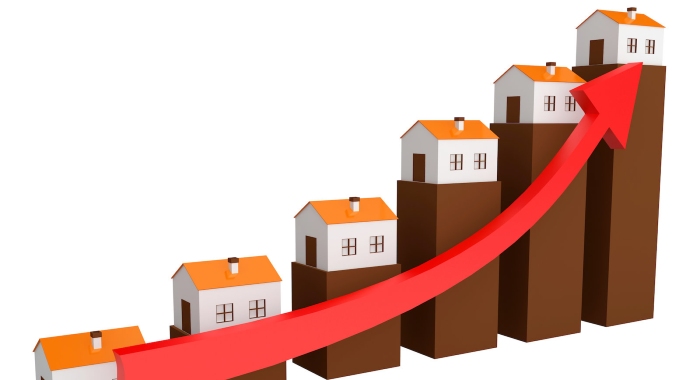While house prices are still rising, the Halifax has announced a slowdown in house price increases. According to the latest Halifax House Price Index, property prices have only increased by 0.3% in January.
This is the lowest monthly rise since June 2021. Despite this slowdown in monthly price growth, the annual growth is still at 9.7%, which means the average house price in the UK is at a record high of £276,759.
As a result, the level of affordable homes continues to be at a historical low. And younger people especially struggle to get on the housing ladder.
Despite record levels of first-time buyers stepping onto the ladder last year, younger generations still face significant barriers to home ownership as deposit requirements remain challenging.
Russel Galley, Managing Director at Halifax
Will This Slowdown In House Price Increases Continue?
To answer this question, we have to look at what has driven this price growth in the past two years.
Why House Prices Have Risen So Much
There were two main factors that were responsible for the huge increase in property prices in 2020 and 2021. First, the pandemic had a big influence on the housing market.
Several lockdowns and working from home orders meant, that many people spent most of their time at home. This has led many to look for properties with more space inside and out. And with the commute falling way, a move to more rural locations became feasible.
This shift in people’s attitude towards their homes is likely to continue into 2022, with flexible working now possible for many. Another side effect of the pandemic was the change of people’s spending habits.
With non-essential shops and hospitality closed for long periods at a time, many were able to save money which they could put towards their deposit on a new house.
To minimise the effects of the pandemic on the economy, the government has put in place several measures to help the economy, one of which was the Stamp Duty Land Tax (SDLT) holiday. This removed the need to pay stamp duty on a property up to £500,000, if the sale completed before 1 July 2021.
And on properties over £500,000, SDLT only needed to be paid on amounts above this threshold. These factors have all contributed to the massive hike in house prices over the past two years.
The Market Is Expected To Slow Down
However, there are now signs that the market is slowing down, which is shown by the slowdown in house price increases in January 2022.
While it is likely that people will continue to be able to work more from home in future, and therefore look for more space in more rural locations, many people flock back to the city centres with easing of restrictions.
The Stamp Duty holiday has ended on 1 July 2021 and is highly unlikely to be reintroduced by the Chancellor. And in addition to this, affordability of properties will become a challenge.
Financial pressures are high and there is no sign of them abating. Rising inflation, increase in National Insurance Contribution, rising fuel costs and costs of living, will put a strain on people’s budgets.
This, combined with still very high property prices, is likely to result in a cooling of the property market, which makes it likely that the slowdown in house price increases will continue.
This situation is expected to become more acute in the short-term as household budgets face even greater pressure from an increase in the cost of living, and rises in interest rates begin to feed through to mortgage rates. While the limited supply of new housing stock to the market will continue to provide some support to house prices, it remains likely that the rate of house price growth will slow considerably over the next year.
Russell Galley, Managing Director at Halifax
Another reason why the slowdown in house price increases should continue, is that more properties should come on the market, easing the pressure on the housing market.
Rightmove has announced that January 2022 was the busiest on record. Buyer demand has gone up by 16% compared to the previous year, which was also a busy month. However, the good news is, that new listings are also up, by 10% compared to January 2021.
And requests for valuations, which is the first step in the process of selling a property, has also increased by 27% compared to the previous year and 53% compared to 2020.
With more properties coming on the market, buyers will have more choice, which will start to balance demand and supply on the housing market.
So, while property prices will continue to rise over this year, there are signs that the slowdown in house price increases will continue, which should lead to a more balanced property market.




